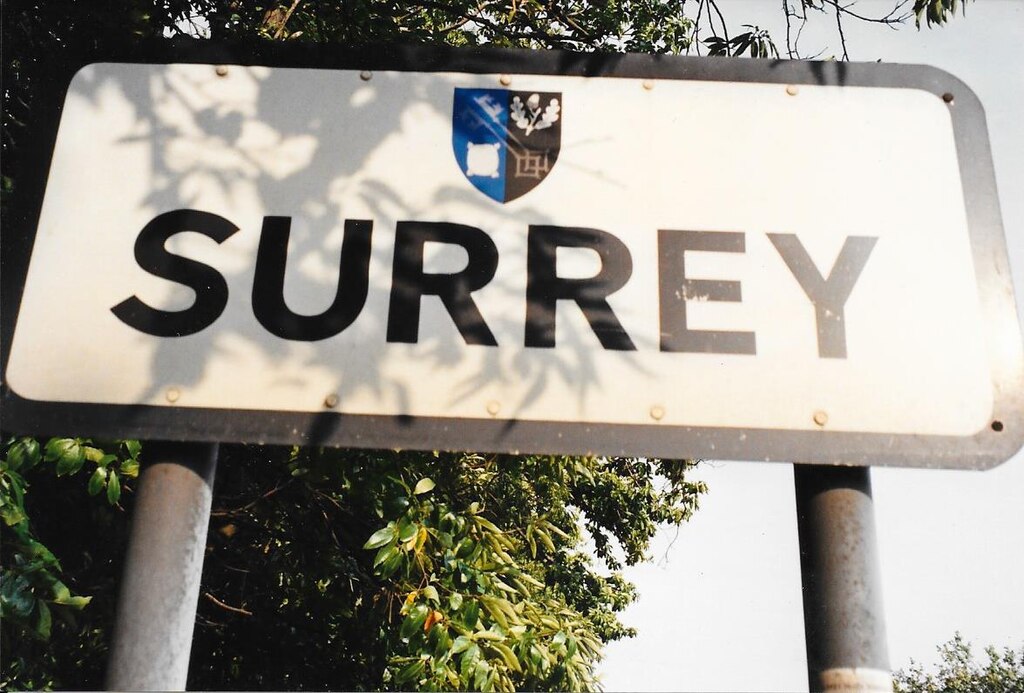It’s undemocratic not to proactively seek views of communities on council reorganisation
The side-lining of the public in determining the future of cherished local services has been branded undemocratic.
This follows the Government revealing local people will not be proactively asked for their opinion of local government’s biggest shake-up in 50 years.
The reorganisation will lead to big changes in how services including waste, leisure centres and social care are provided and has the potential to ride roughshod over local identity. Last December’s English Devolution White Paper called for the merger of county councils with far more localised district councils to create what critics have branded ‘mega councils’, each with populations above half a million people.
The Government on Tuesday launched a consultation into local government reorganisation (LGR) in Surrey, the first county to proceed. This will look at two possible options for the configuration of local government in the county.
However, the general public were not listed as a named consultee on the proposals. There will be no full public consultation into the plans and no proactive campaign to ask residents for their views. The focus of the Government consultation will be public sector and delivery partners of Surrey’s 11 district and one county council. Should residents find out about the campaign, they will however be permitted to submit a viewpoint on specific questions, all of which focus on technical aspects of proposals, rather than asking for an overall view.
Nine of the county’s 11 districts favour dividing the county, which has a population of 1.23 million, into three new councils. The county council and two districts favour dividing it into two councils.
It is expected the consultation model being used in Surrey will be used in the other 20 areas due to undergo reorganisation. This reorganisation will eventually impact on the lives of 20 million people, potentially with little effort to gauge the views of local people. The Government says it will be completed this parliament.
In every previous round of local government reorganisation, whenever local referenda have been held, the electorate has resoundingly rejected proposals for mega councils, preferring instead to keep local government more local (see below).
In response, Cllr Sam Chapman-Allen, Chairman of the District Councils’ Network (DCN), said:
“Local government reorganisation impacts upon every local service – from waste collection to housing, from social care to leisure centres – and it’s essential that the views of the public are central to deciding these services’ future.
“Failure to proactively ask local people for their view is undemocratic. The view of the public shouldn’t be an inconvenience that’s glossed over – in a democracy it should be at the absolute core of decision-making.
“The local government minister recently told MPs that reorganisation should ‘facilitate better and sustained community engagement’, but this cannot be achieved if local people are cut out of the biggest decision of all on the future of their place.
“All the evidence from past referenda suggests people clearly prefer new councils to be genuinely local and they have rejected proposals for mega councils.”
Cllr Hannah Dalton, Chair of the Surrey Leaders Group and Vice Chair of the DCN, said: “Surrey’s residents have been denied a voice with the county elections being cancelled, and are now being further sidelined by not actively engaging them in the statutory consultation.
“The inconvenient truth is many residents are against the proposal to replace district councils and the county council with two mega councils, each representing over 600k people. The Government needs to hear what matters to our residents and what they want the future of Surrey local government to be, rather than rely on the opinion of a small number of public sector partners who may not even reside in the county.”
Tom Brake, Director of Unlock Democracy, said: “This forced local government reorganisation is centralisation dressed up as devolution. Far from empowering local people, by minimising public engagement, ministers are showing these communities utter contempt.
“There is no ‘one size fits all’ model for devolution – it should be driven by local people, not imposed from the top. Presumably ministers are avoiding genuine public consultation because they know the public opposes their plans.
“The government needs to show communities the respect they deserve and seek the active participation of the public in their plans.”
Notes for editors
- The Government has announced the reorganisation of local government in so-called ‘two-tier’ areas, which cover 20 million people in total. This would mean 21 county councils merge with 164 district councils to create new unitary councils, each with a population of at least half a million people. This would be the biggest overhaul of English local government in half a century.
- This was announced in the English Devolution White Paper which promised to devolve power to local areas. The White Paper said strategic authorities, led by directly elected mayors, would be set up across England with existing local councils streamlined within their boundaries.
- DCN backs devolution and would support local government reorganisation if it improves services, keeps local government local and is supported by communities. However, we fear this will not be the case.
- We fear the Government’s current policy risks falling short by:
- weakening local services, for instance by facilitating the transfer of funds from valuable district council services like housing, street cleaning and waste collection to prop up expensive social care services currently run by county councils;
- diminishing democracy at a genuinely local level;
- not winning the support of local residents whose views may be ignored;
- missing an opportunity to reform local public services to remove barriers between councils, the NHS and police, thereby maintaining inefficiency and unaccountability.
- The creation of unprecedently large mega councils with minimum 500k population takes powers far away from local communities and could ride roughshod over local identities.
- Very few existing unitary councils have a population over 500k. The average population of county-area unitaries created between 1990 and 2023 is 288k. The population of Local Government Minister Jim McMahon’s local council (Oldham) is 246k and that of Secretary of State, Angela Rayner (Tameside) is 235k.
- Local government minister Jim McMahon’s parliamentary statement mentioning the importance of engagement can be found here.
List of local referenda results
When local government reorganisation has been proposed previously, some councils have staged a referendum to gauge the public mood.
- Proposals for a Shropshire unitary council, January 2007: Shrewsbury 70% against (42% turnout), Bridgnorth 86% against (47% turnout), South Shropshire 57% against (42% turnout).
- Proposals for a Durham unitary council, June 2007: Countywide result: 76% vote against (40% turnout)
- Proposals for a Somerset unitary council, July 2007: Countywide result: 82% against (Turnouts ranged from 46% to 54% across district areas).
- Proposals for Christchurch Borough to join the then proposed Bournemouth, Christchurch & Poole Council, December 2017: 84% against (53% turnout).
- Later proposals for two competing proposals for unitary councils for Somerset, May to June 2021. Stronger Somerset (two unitary councils) 65%, One Somerset (one countywide unitary council) 35% (Turnout 26%)






